Best budget PCs for music production 2025: Plenty of power and performance for less
Looking for a great budget PC for music production? There’s value to be found at the entry level, as these choices prove
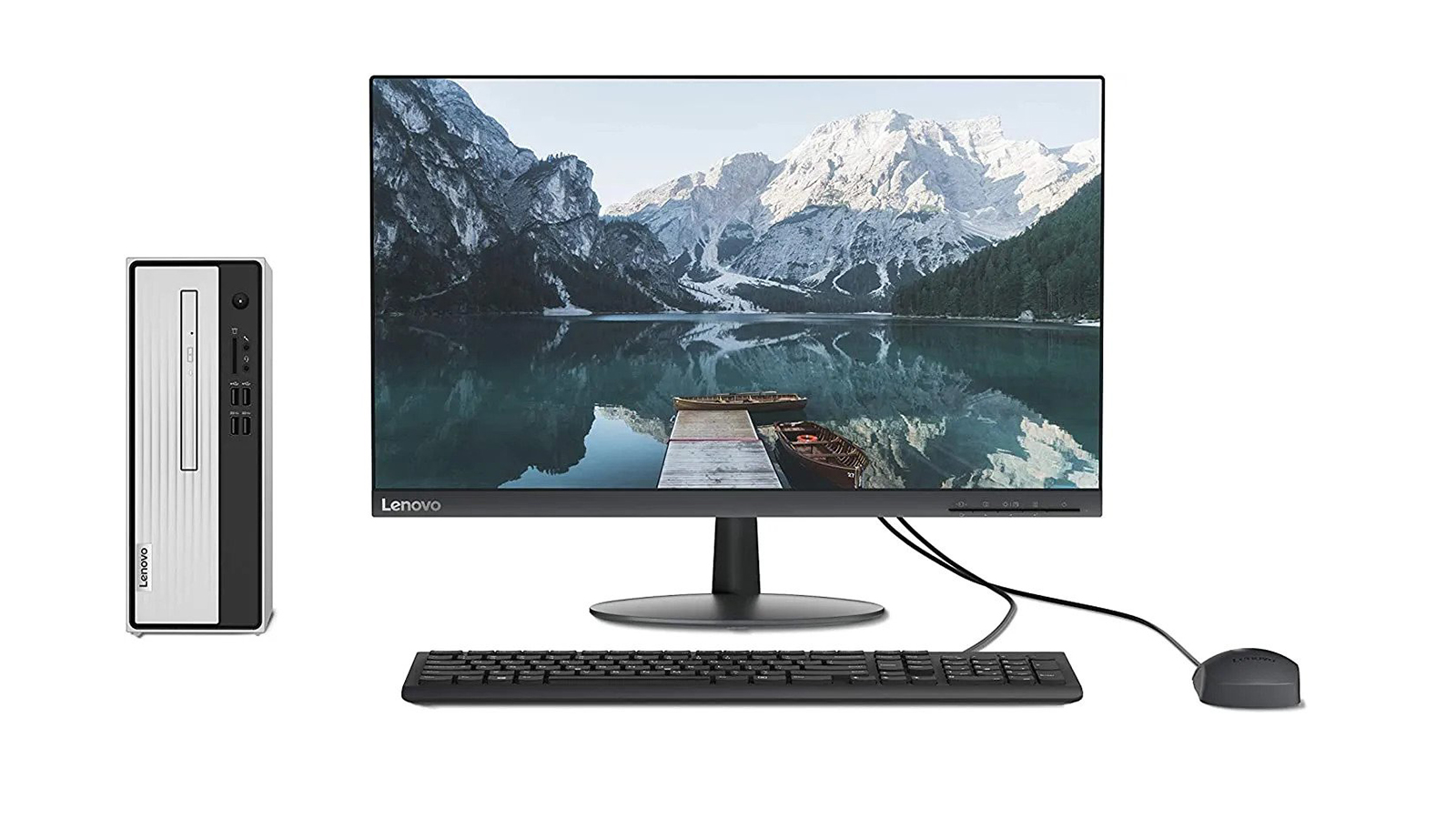
If you’d have told someone 20 years ago that you could carry an entire music studio on a phone, or that some of the biggest recordings of this era were made using little more than some readily available, inexpensive software, then you’d have probably attracted some funny looks. But the best budget PCs for music production - both desktop and laptop - can serve up enough power and performance to enable anyone, of any skill level, to start music production.
In this guide, we’ll show you some of the best budget PCs for music production, as well as offer advice on the things to look for when you start your buying journey. You can find comprehensive buying advice at the bottom of this guide.
Best budget PC for music production: Our top picks
As it turns out, there are plenty of options for anyone looking for a budget PC on which they can record and produce music. We’re seeing more and more ‘mini’ PCs enter the market, boasting enough power to suit many music applications, and we were so impressed with the Geekom Mini IT8 that we’d happily recommend it as a portable, powerful option to consider. Elsewhere, the Dell Inspiron 15 is still a sound choice, even after all these years, balancing price and performance into a single, well-crafted package.
Best budget PC for music production: Product guide
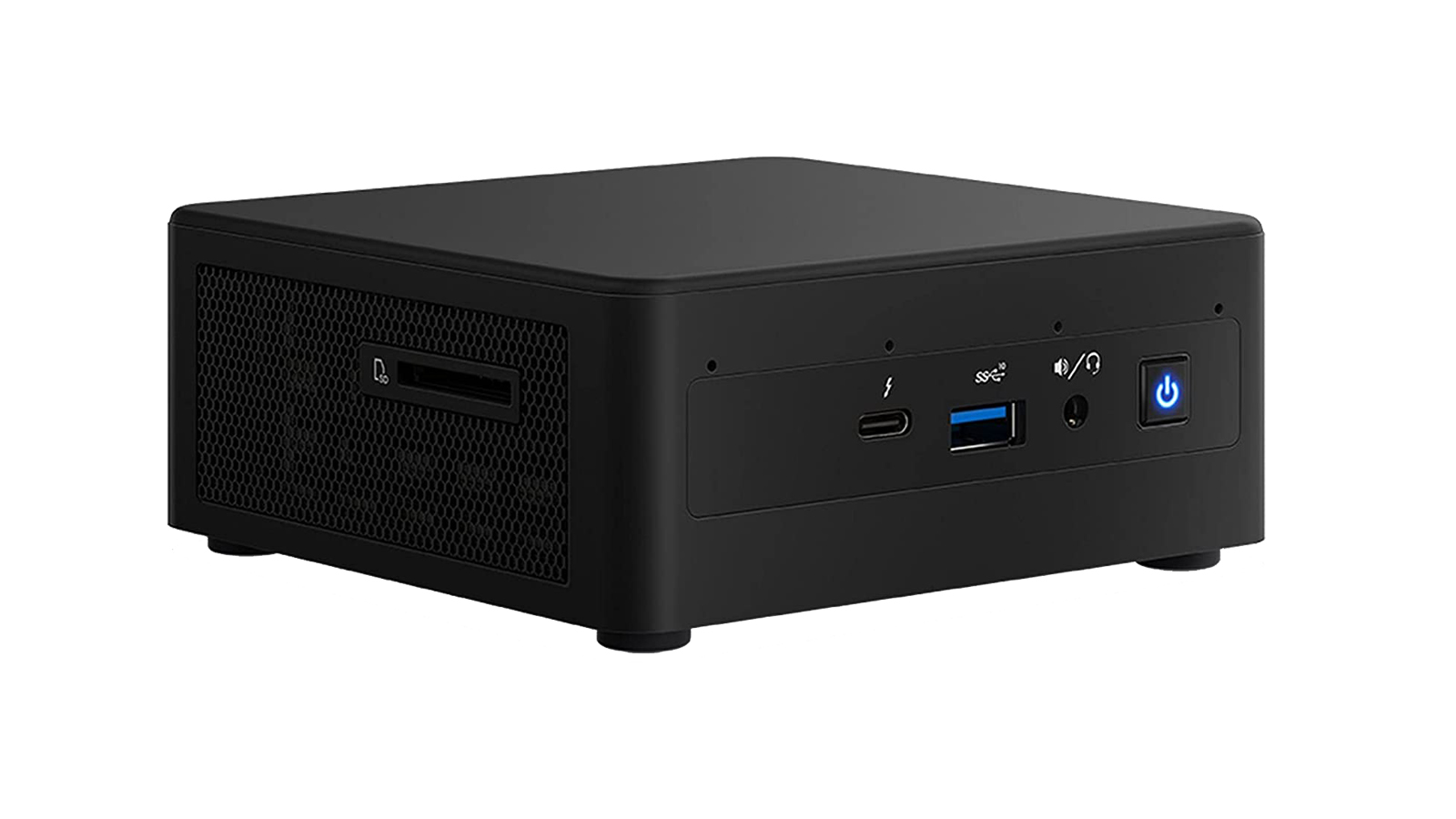
1. Geekom Mini IT8
Our expert review:
Specifications
Reasons to buy
Reasons to avoid
There’s a growing market for these tiny desktop PCs, and on paper it’s not hard to see why. At around the size of roughly five pieces of bread stacked on top of one another, the Geekom Mini IT8 has near-perfect spec for any budget-conscious producer. 16GB of RAM means you can manage some pretty hefty sessions, while 256GB solid-state storage (expandable up to 1TB) is superb for the price.
We’d perhaps have reservations about how it would cope under serious duress; a sad fact about PCs is that processors under serious pressure produce serious heat, and therefore require cooling. But at this price, and with this level of portability, it may be the perfect machine for anyone starting their music production journey.
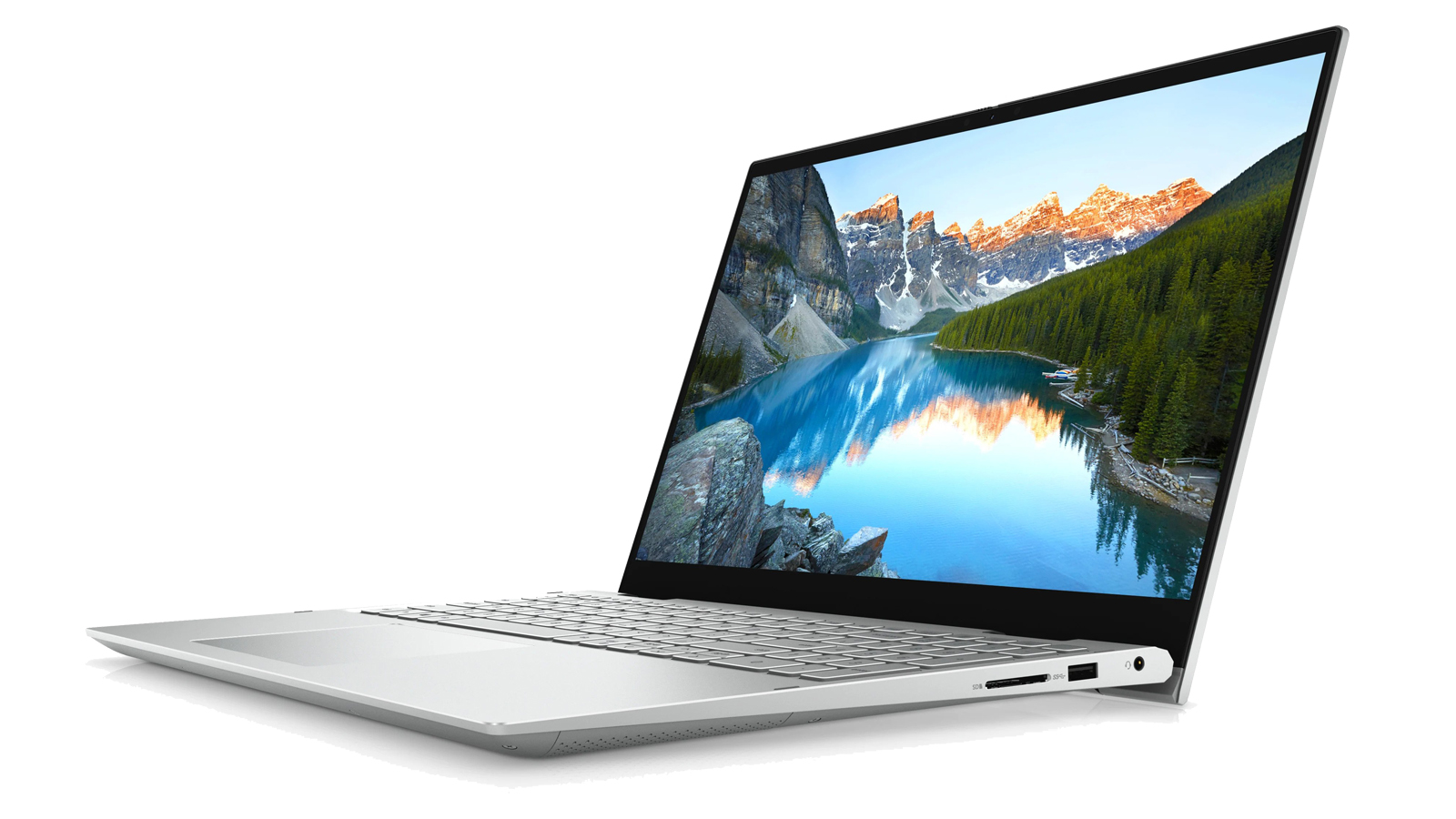
2. Dell Inspiron 15
Our expert review:
Specifications
Reasons to buy
Reasons to avoid
Many a producer has started their career tinkering with a Dell Inspiron 15. The Inspiron hits that classic sweet spot of price and performance, and is arguably the best choice for cost-conscious producers looking to get a machine that will grow with them as they progress.
The baseline model, with 8GB RAM and Ryzen 5 CPU will be fine for most, but if you can afford the bump up to 16GB of RAM or the superior Ryzen 7 processor then we’d advise you do just that. Either way, you could do a lot worse than the Inspiron.
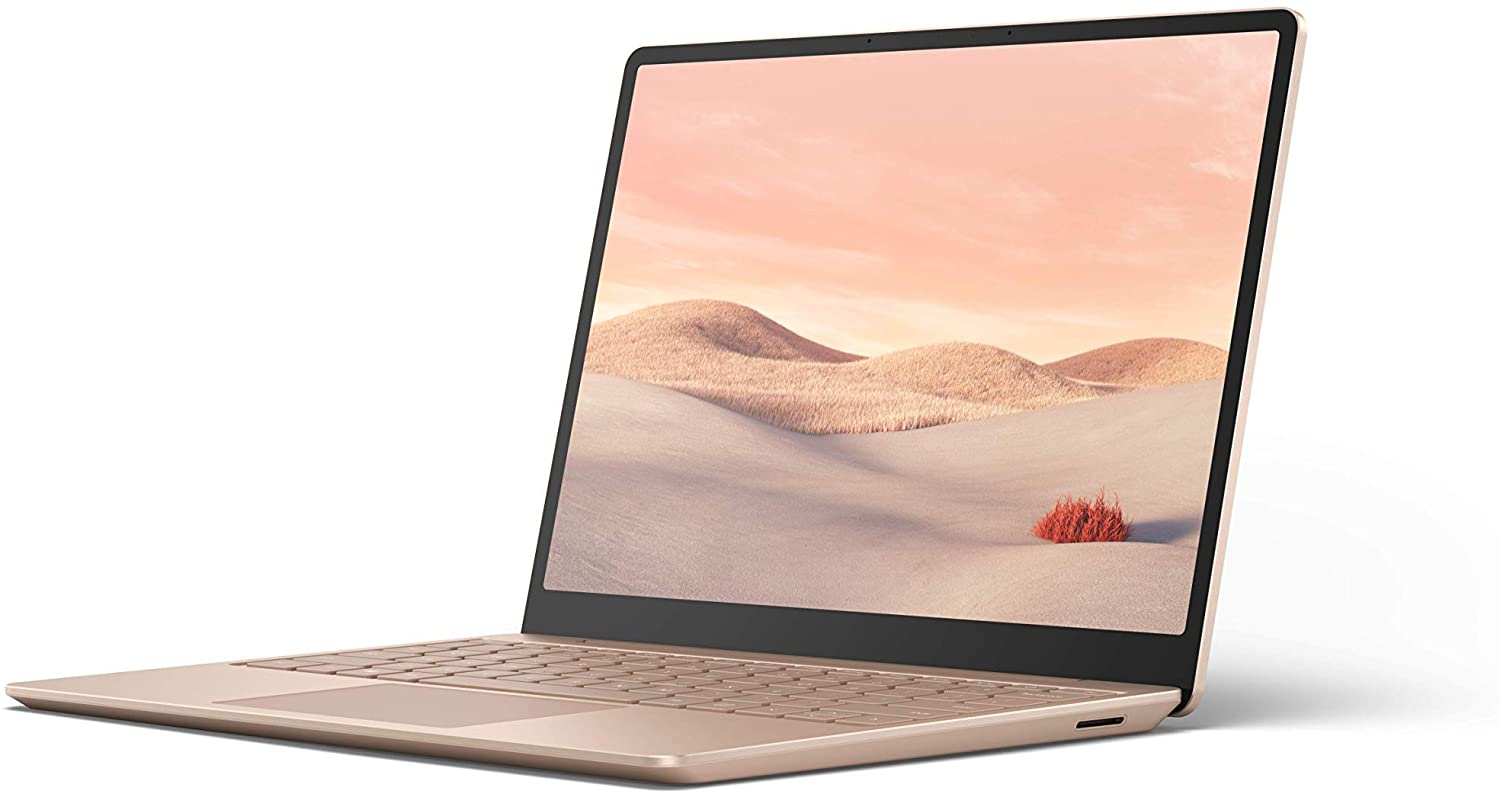
3. Microsoft Surface Laptop Go
Our expert review:
Specifications
Reasons to buy
Reasons to avoid
While there are other options on this list that have more power, there aren’t many that will be as simple to use, and as nice to interact with, as the Microsoft Surface Laptop Go. As a step above the base Surface Go range, the Surface Laptop Go features a familiar interface and is simple to use. Performance isn’t the best, but for simple beat-making or on-the-go recording, it’s a solid option.
Admittedly, it’s only really able to call itself a ‘budget’ music production PC if you go for the base spec; add in extra RAM or storage to make it more capable as a production machine and the price soon adds up. But overall, it’s a solid option we could see appealing to either older or younger users who don’t want the faff of using a machine that requires constant tinkering with in order to extract its best performance.
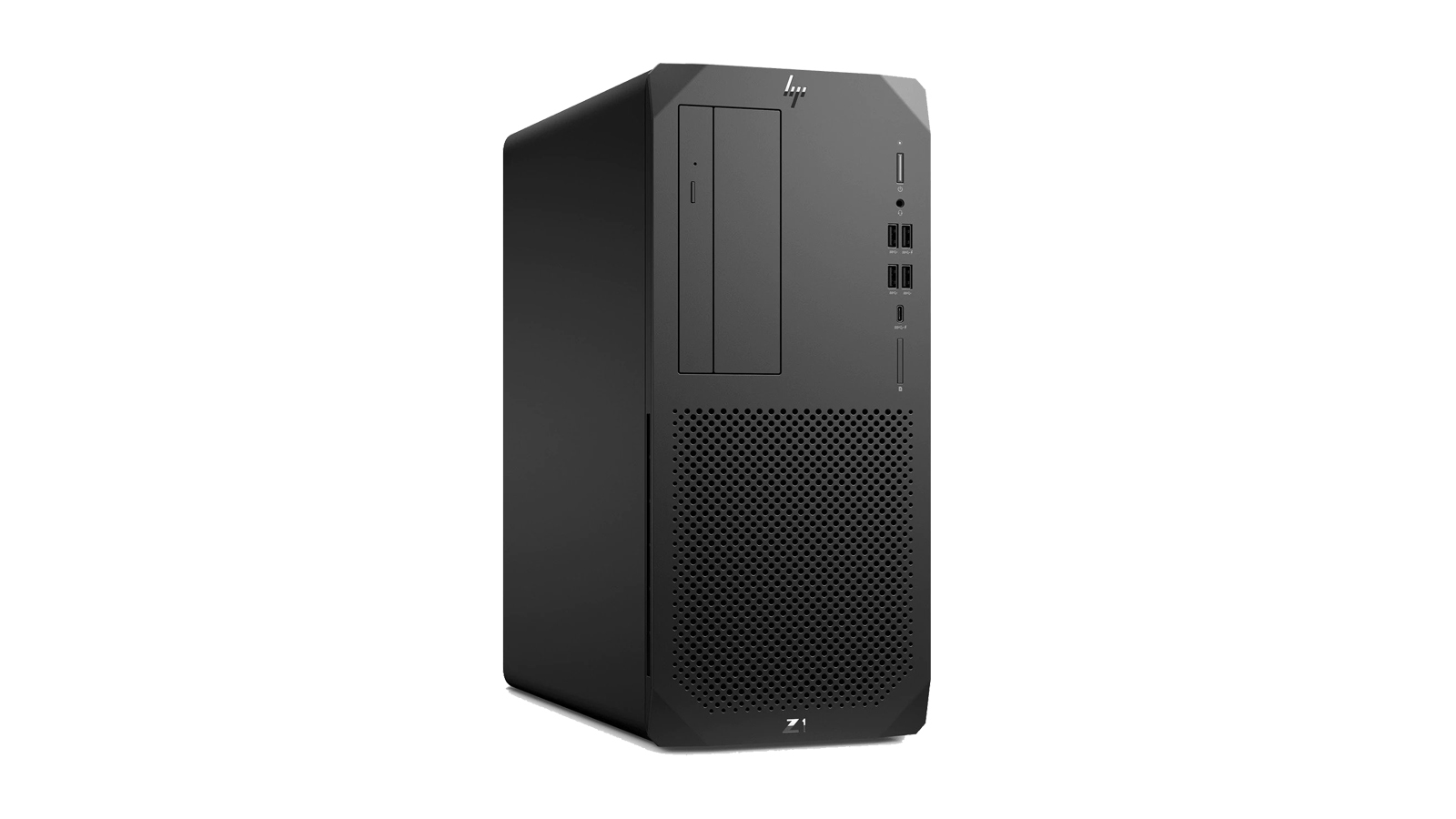
4. HP Essential Tower
Our expert review:
Specifications
Reasons to buy
Reasons to avoid
While it won’t win any design awards, or become the centrepiece of your chic new studio space, the HP Essential Tower is a highly capable, very well-priced PC that will serve you well for basic music tasks.
The Essential Tower has 8GB of RAM, which is fine for most tasks you’ll throw at it, while there are plenty of USB ports and even an SD card slot on the front to allow for additional storage. It might not be pretty, but we can see it being more than capable enough for plenty of people. Oh, and the addition of a mouse and keyboard in the bundle means you’ll only need a monitor to be up and running.
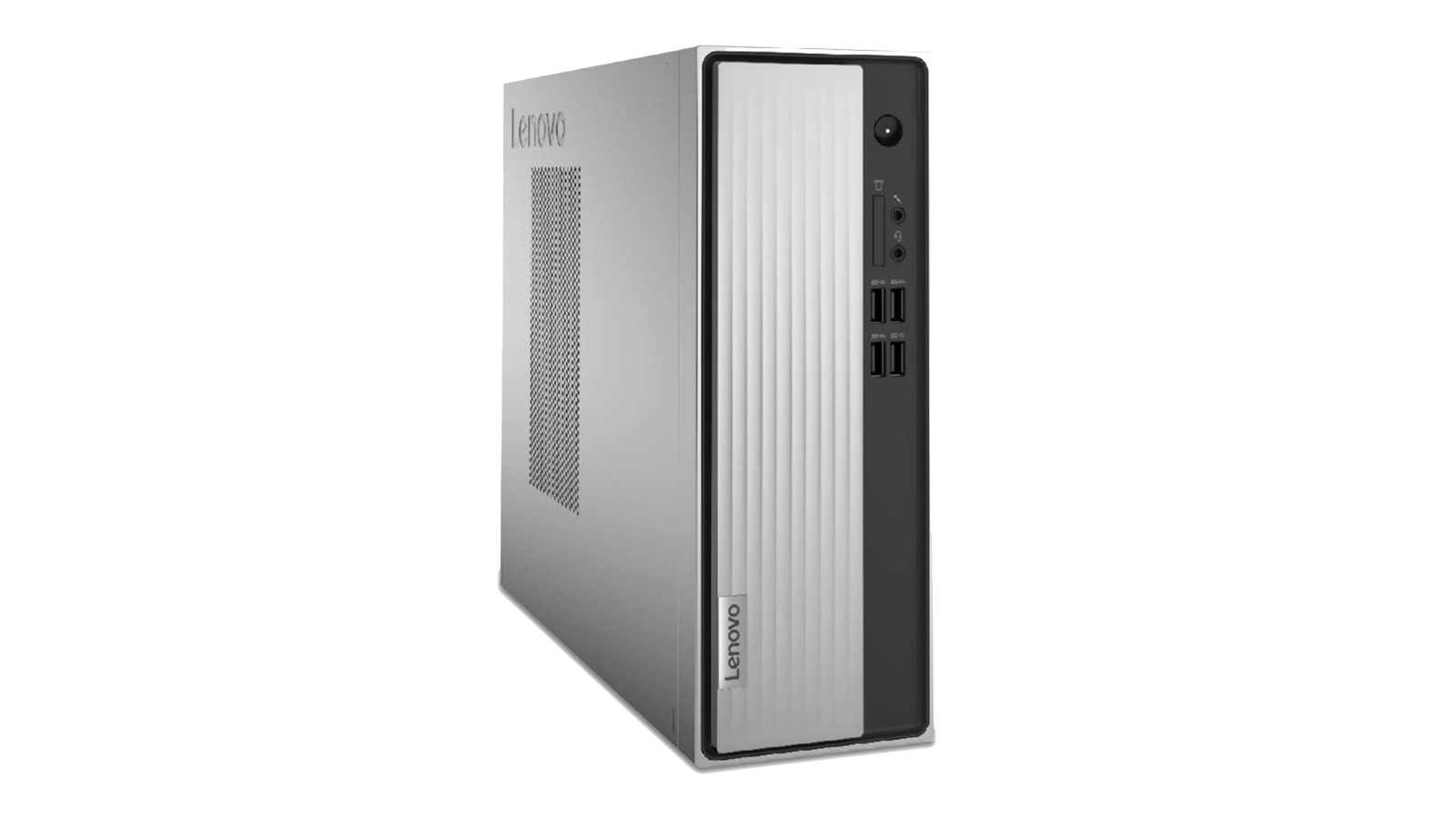
5. Lenovo IdeaCentre 3
Our expert review:
Specifications
Reasons to buy
Reasons to avoid
If the new PC in your life is meant to serve multiple purposes, i.e. home-working, internet browsing or video calls, yet needs to be capable of a sneaky Maschine session as well, then the Lenovo IdeaCentre is a decent option. It boasts a sensible spec-sheet for the price and features a nice, clean design too, so it won’t look out of place in a home office set-up.
It’s not the most powerful beast, for sure, but if you’re only dabbling with music-making then it’s a great option.
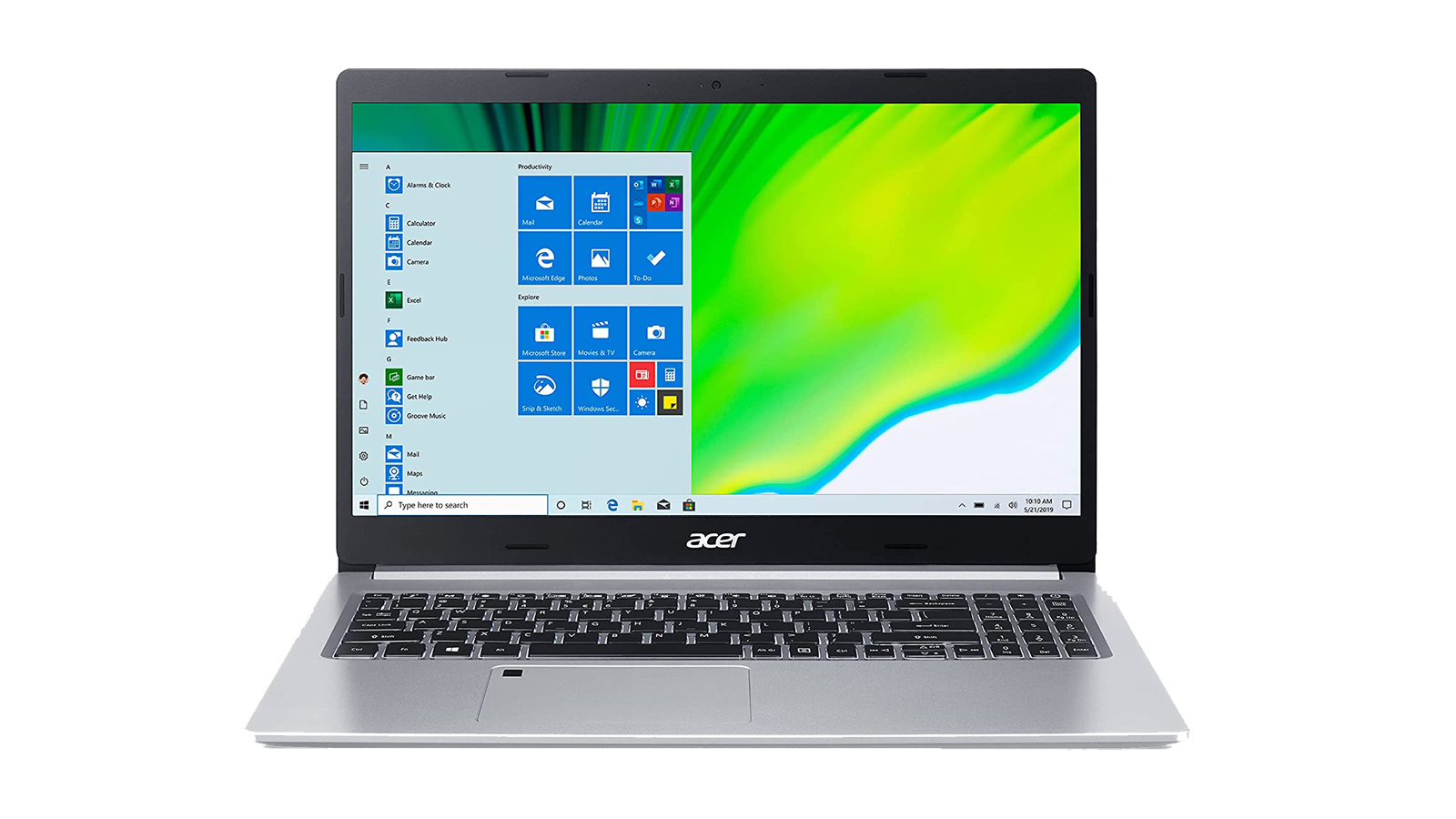
6. Acer Aspire
Our expert review:
Specifications
Reasons to buy
Reasons to avoid
Another old favourite, the Acer Aspire range of desktop PCs are mass-produced, sure, but have been propping up the production escapades of budding producers for years now. Simple and familiar enough to use, but with enough grunt to handle most tasks in a production environment, the Aspire is a solid choice for most.
The base model comes with 8GB DDR4 RAM but is user-expandable up to 32GB, so you could quite feasibly give it a big boost if you’re finding it sluggish.
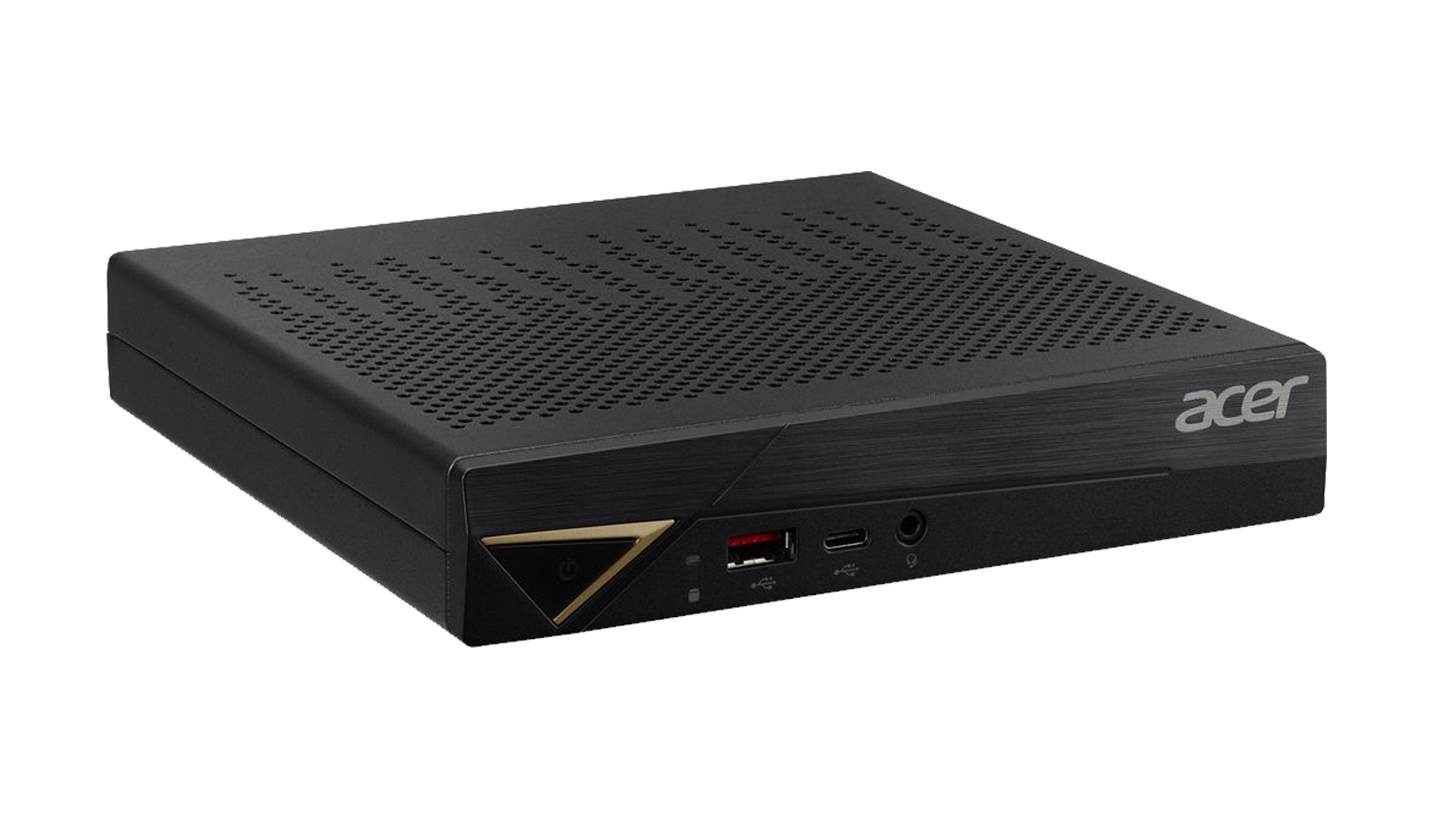
7. Acer Revo RN96
Our expert review:
Specifications
Reasons to buy
Reasons to avoid
As with others on the list, you’ll see there’s a trend away from the monolithic mega-sized desktops of the past. As the technology has developed, manufacturers have been able to shrink their offer to deliver the power you’ll need in a box big enough to act as a stand for your monitor. The Acer Revo RN96 is one example, packing enough RAM (with space for more) and a decent amount of storage into a relatively small desktop unit.
Admittedly, the Intel i3 CPU isn’t exactly a speed merchant, but will be enough to keep up with most tasks you can throw at it.
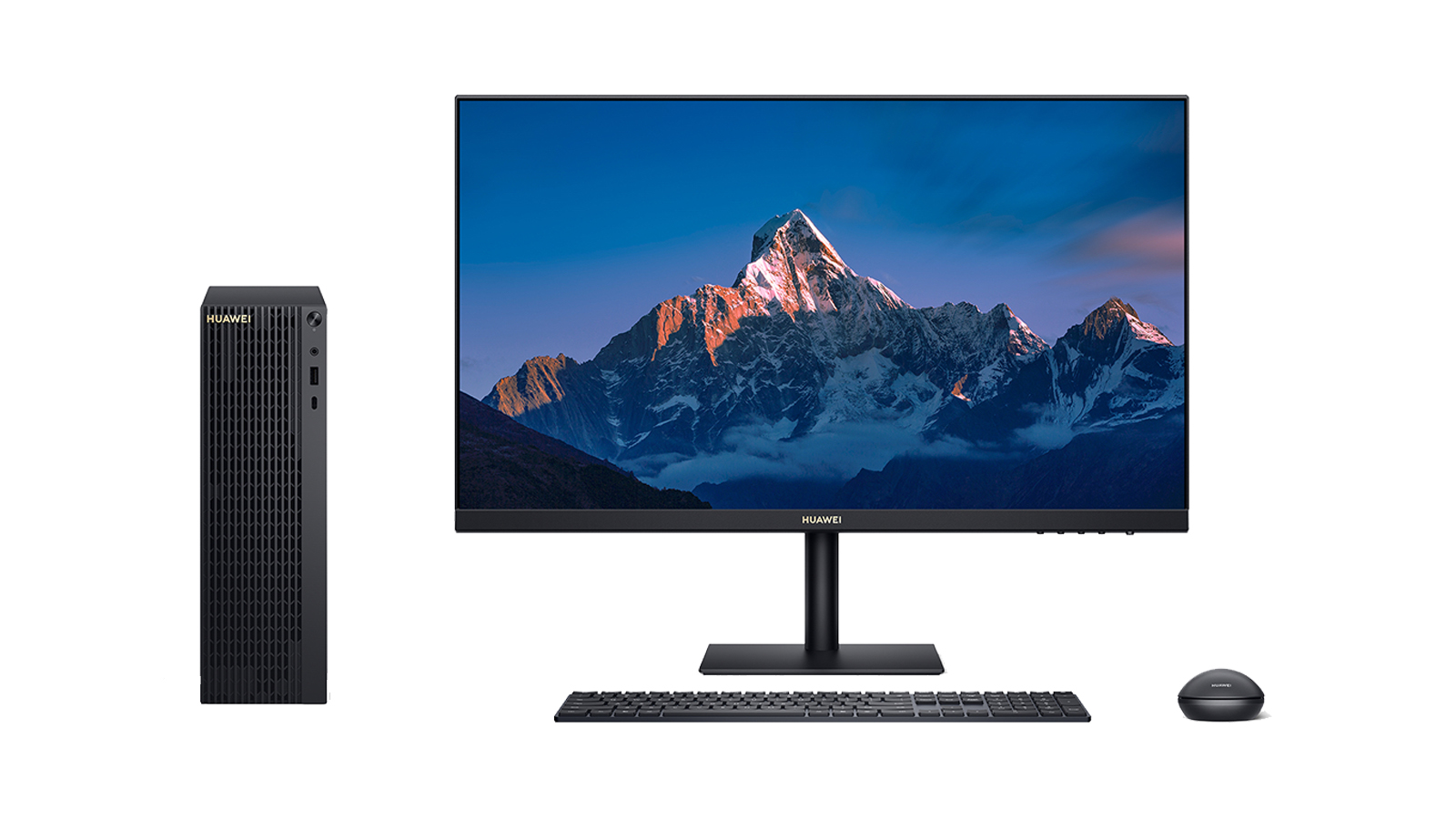
8. Huawei MateStation S
Our expert review:
Specifications
Reasons to buy
Reasons to avoid
Huawei’s Matebook laptops are seen in some circles as cost-effective MacBook competition, so we were expecting big things from the Huawei MateStation. Despite the daft name, it largely lives up to its billing as a solid entry-level PC for music production thanks to sufficient RAM, a sensible CPU and plenty of connectivity options.
It’s also nicely designed and compact, unlike some desktop PCs, meaning it won’t dominate a small studio space. Would be nice to have the option of user-upgradeable RAM, but the 8GB on offer will be fine for anyone starting out in production.
Best budget PC for music production: Buying advice
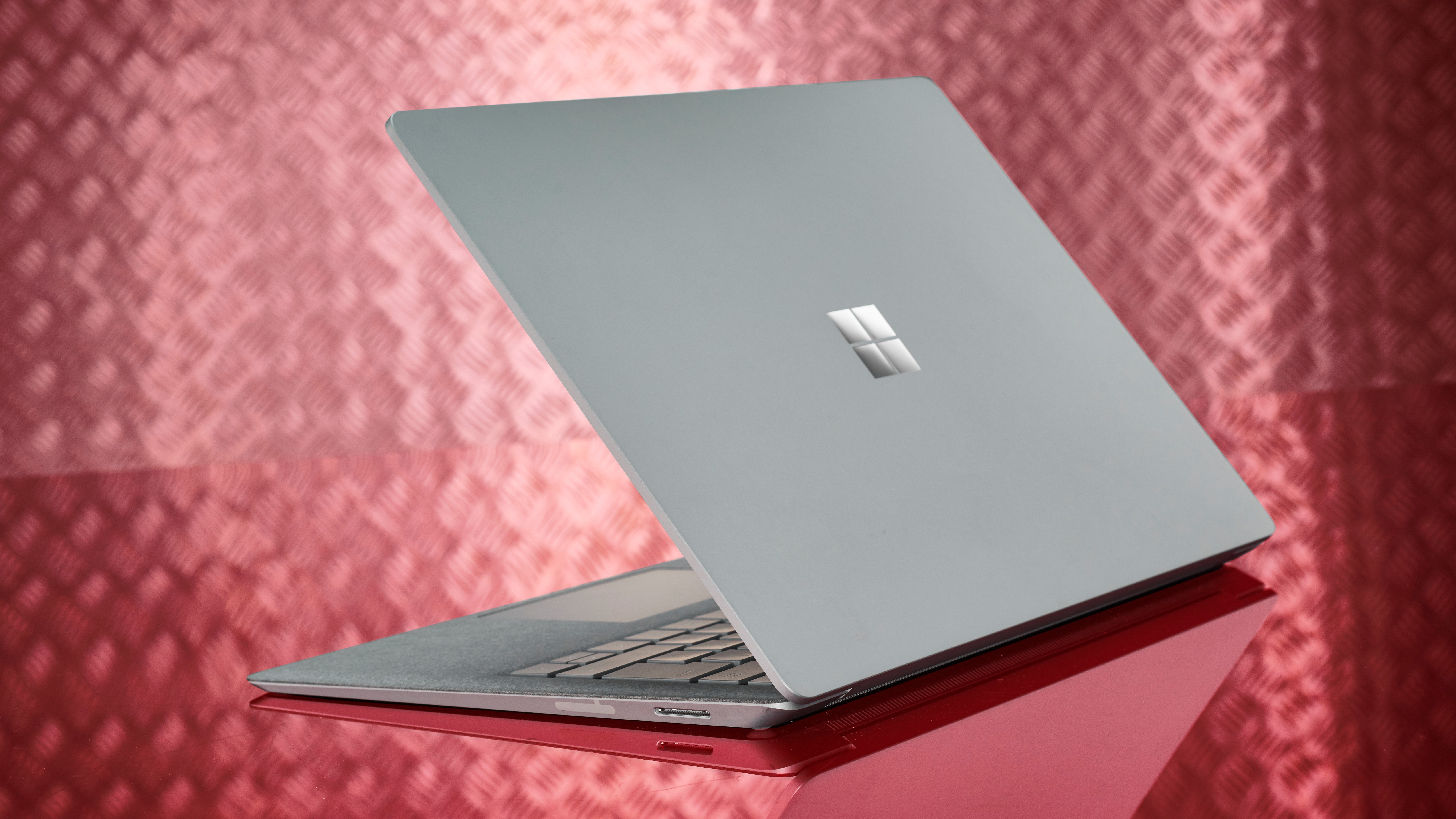
What to consider when buying a budget music production PC
MusicRadar's got your back
When you are looking to buy a budget PC to produce music on, you need to be aware of a few key specifications you should be looking out for. Don’t be distracted by flashy RGB lights, or a 4K screen; with music production, it’s all about performance and storage. Performance comes in the form of how long it takes to export an audio file, or how long you’ll be waiting for a plugin to load. Storage, on the other hand, is arguably more important as it dictates how quickly your PC can write your tracks ‘to tape’ and then, subsequently, how quickly it can re-access that audio when it needs to.
RAM requirements
Breaking it down a bit; your PC’s RAM is the short-term memory of your computer. On it, the audio you’re using in a session is stored so your digital audio workstation (DAW) can access it quickly. The bigger the RAM, the larger and more complex the DAW sessions you can run. At the budget end of the price spectrum, you should be looking for upwards of 8GB as a minimum, although with some PCs you may be able to upgrade this yourself. In our experience, upgrading the RAM is the simplest and quickest way to breathe new life into an ageing production machine too.
Storage
Storage also refers to the storage volume. It used to be every PC had a hard disc drive (HDD) although these are being succeeded by faster – albeit more expensive – solid-state drives (SSD). These drives offer much faster data transfer rates and, with no moving parts to break, are more reliable than the older models. If you can get a PC with an SSD within your budget, you should.
Connectivity
It’s important also to consider the connectivity available to you with your PC. While many older peripherals, like USB MIDI keyboards and controllers, still rely on older USB ports, there’s a growing trend towards employing USB-C connectors.
In this guide, we’ve tried to offer up some suggestions of great affordable PCs for music production, including both laptops and desktops. In keeping with the budget tag, there may be compromises in some places, but overall any of the machines here will do a sterling job of getting you recording, editing and mixing in no time at all.
Find out more about how we test music gear and services at MusicRadar.
Related buying guides
- Want something portable? Try the best budget laptops for music production
- These are the best audio interfaces
- The best budget studio monitors
Get the MusicRadar Newsletter
Want all the hottest music and gear news, reviews, deals, features and more, direct to your inbox? Sign up here.
Chris Corfield is a journalist with over 12 years of experience writing for some of the music world's biggest brands including Orange Amplification, MusicRadar, Guitar World, Total Guitar and Dawsons Music. Chris loves getting nerdy about everything from guitar and bass gear, to synths, microphones, DJ gear and music production hardware.
